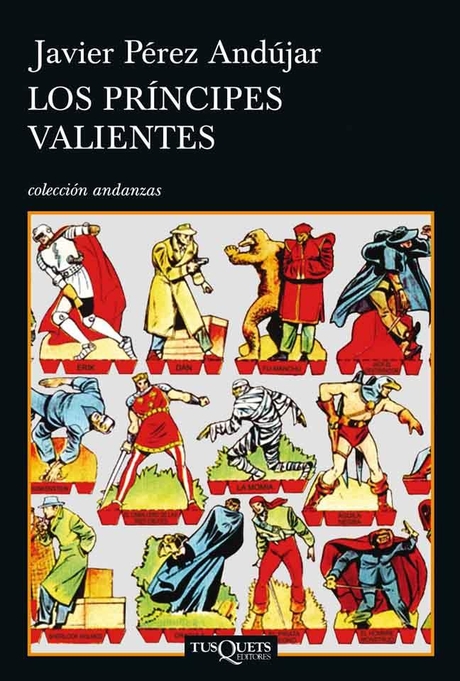Of Princes and Heroes at the Reading Club
The discussion of Javier Pérez Andújar’s autobiographical novel Los principes valientes — in which he talks about the relationship between the town of Sant Adrià del Besós and the city of Barcelona, about ??the river as a vital border, about how we build up our imagination with what we read and a whole multifarious mix of cultural myths — was characterized by a warmth that contrasted with the intense cold outside.
‘Every river has a writer,’ said the author, who went on to recall that ‘we crossed the river to find culture, like those comic-book heroes that give the book its title, who crossed the frontier and came back to found a clan.’ But he also insisted that there was culture not only in that Barcelona, at once distant and near, ??but also in the avalanche of information that came pouring out of the television, in series such as Colombo and Kojak, or in the oral transmission of family experiences and stories.
So, for an hour and a half, the text was a pretext for talking with Pérez Andújar about our personal imaginary, about Poe, Baudelaire and the great literary tradition that has taken the modern city as the theme to be explored, or the TV of the 70s. Paseos con mi madre, Pérez Andújar’s new book, which completes Los principes valientes, was also part of this informal conversation about literature, life and art.
Meanwhile, for our next meeting we have a rather more academic title, Serge Guilbaut’s study How New York Stole the Idea of ??Modern Art, which will be presented by Valentín Roma, whose most recent book is Rostros.
Jordi Carrión
Questions:
One of the regulars at the Reading Club was unable to attend and sent us a question by email: ‘The title of Los principes valientes is very beautiful. How did you come up with it?’
As Javier Pérez Andújar said at the meeting, the title comes from a comic book, El príncipe valiente, which he adopted.
Javier, we forget to put another question to you that arrived by email: ‘I’d like to say that I loved the book, among other things because when the author writes about his neighbourhood, for example, he takes sides (being on the left), but he doesn’t exploit it in a political or dramatic way, but simply uses it to write poetry and create literature.’


